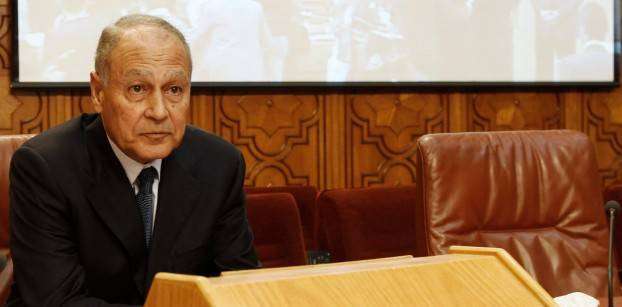Latest NEWS
- Aswat Masriya, the last word
- Roundup of Egypt's press headlines on March 15, 2017
- Roundup of Egypt's press headlines on March 14, 2017
- Former Egyptian President Hosni Mubarak to be released: lawyer
- Roundup of Egypt's press headlines on March 13, 2017
- Egypt's capital set to grow by half a million in 2017
- Egypt's wheat reserves to double with start of harvest -supply min
- Roundup of Egypt's press headlines on March 12, 2017
Mubarak-era minister chosen as Arab League Sec-Gen
CAIRO, Mar 11 (Aswat Masriya) - Mubarak-era Foreign Minister Ahmed Aboul Gheit was named as Secretary-General of the Arab League, succeeding Nabil al-Arabi after the League's council approved the decision unanimously on Thursday.
Aboul Gheit will be the eighth Secretary-General of the Arab League as of July 2016.
One year after his graduation from Ain Shams University with a bachelor in commerce, Aboul Gheit entered the diplomatic service in 1965. He then assumed positions in embassies around the world including Cyprus and Moscow. He became the foreign minister’s political advisor in 1982 and was appointed as the director of the foreign minister’s office in 1991 and assistant to the foreign minister in 1996.
The 2011 Uprising
He became foreign minister from July 2004 until March 2011.
He was part of the last Cabinet that served under former president Hosni Mubarak, who was forced to dismiss the prime minister and all ministers in an effort to absorb public anger when the 2011 Uprising started. When a new Cabinet was sworn in before Mubarak in January 2011, Aboul Gheit retained his post but resigned in March 2011.
Historical milestones of the Arab League
- The Arab League was founded in 1945, the same year as the United Nations, with the aim of realising Arab economic, social, military and geographic unity.
- The League started its operation on March 22, 1945 with six member states: Egypt, Iraq, Syria, Lebanon, Saudi Arabia and Jordan. It currently includes 21 member states after the suspension of Syria in 2013.
- The permanent seat of the Arab League is established in Cairo. However, the League assembled in Tunis from 1979 to 1990 due to the Arab states' objection to Egypt's peace treaty with Israel.
- Seven Secretary-Generals have assumed the position since the founding of the League, with six Egyptians and one Tunisian.
Unresolved issues
Widespread criticism has been directed towards the Arab League for failing to take a stand on various issues and for its weak influence amid a turbulent Arab environment. The League has also failed to present a solution for the drawn-out Arab-Israeli conflict, which has been ongoing since 1948.
In 2003, the League's stance on the U.S. attack on Iraq was seen as largely ineffective. It was seen as ineffective in its dealing with the Syrian refugee crisis, which started in 2011.
With organised militias in several Arab states, the Arab League remains immobilized, failing to offer tangible solutions to combat terrorism and extremism.
Resurrection?
Former Advisor at the Arab League, Ambassador Sayed Qasem al-Masry, told Aswat Masriya that changing the Secretary-General does not affect the League's policies or its approach to crises in the region.
He said Aboul Gheit is a "good manager", who can thereby strengthen the League's way of management, however the Secretary-General's tasks remain constrained by the policies of individual member states.
"Aboul Gheit cannot single-handedly resurrect the Arab League, unless there is political will from member states to do so," Masry added.
He stressed that there is a need to change the Arab League's policies and unite Arab efforts in order to be able to face the region's challenges without relying on the Secretary-General in person.











